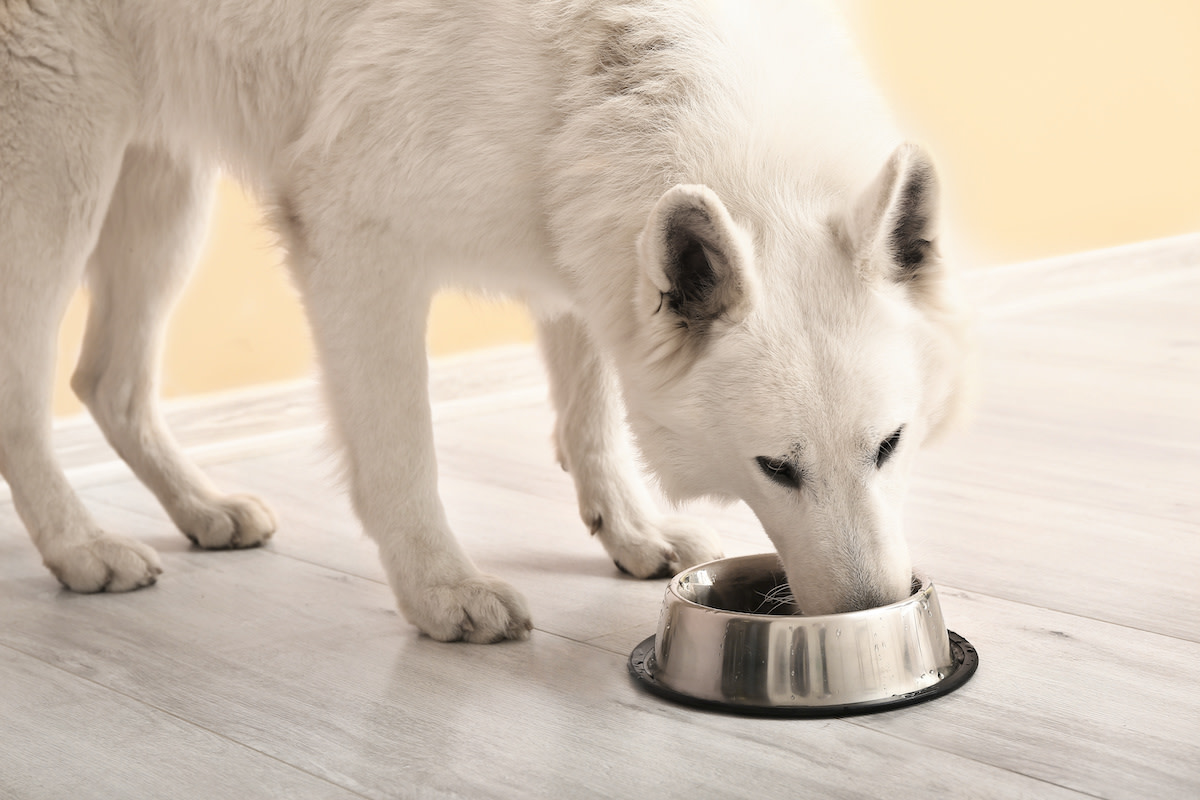Can Dogs Eat Mayo? 4 Risk Factors to Consider
Written by MasterClass
Last updated: Mar 29, 2022 • 3 min read
Pet owners wondering if dogs can eat mayo will be relieved to know that a lick of leftover burger sauce on a plate or a bite of sandwich bread with a small amount of spread won’t likely harm a dog’s health. However, pet owners should refrain from feeding this fatty food to canines, even as an occasional treat. Read on to learn more.
Learn From the Best
Can Dogs Eat Mayonnaise?
If your dog accidentally eats a small amount of mayonnaise, it’s unlikely that they will experience a toxic reaction. However, this emulsion of egg yolks, oil, and lemon juice is high in fat. Though tasty for your pooch, mayo adds no nutritional value to your dog’s diet and can lead to a host of health problems—from an upset stomach to pancreatitis—if consumed in excess.
While it’s safe for most adult dogs to sneak a taste of mayo occasionally, puppies have more sensitive digestive systems and should steer clear. Instead, feed your pup a healthier spreadable human food, like low-fat cottage cheese or unsweetened peanut butter.
4 Hazards of Feeding Your Dog Mayo
Mayo isn’t toxic for dogs, but eating a large amount of it can cause health issues. Dog owners should familiarize themselves with the hazards associated with canine consumption of this fatty condiment, such as:
Allergic reactions: Eggs and the small amount of soy in certain mayo brands can trigger allergic reactions in some dogs. The first time your pooch accidentally eats mayo, monitor them for symptoms of an allergic reaction, which can include excessive scratching, diarrhea, vomiting, rashes, and eyelid inflammation.
Gastrointestinal issues: High-fat foods like mayo can give dogs an upset stomach, diarrhea, or more serious health issues like pancreatitis.
High-fat content: Due to its high-fat content, regularly serving mayo to your furry friend may cause weight gain, diabetes, lethargy, sore joints, or heart disease.
Salmonella poisoning: The egg yolk found in many mayo varieties carries the risk of causing salmonella poisoning or other harmful bacterial infections in your dog. Store-bought mayo has a lower risk of salmonella bacteria than homemade mayonnaise, so be careful if your dog consumes the latter condiment.
What to Do if Your Dog Eats Mayo
A dog that only licks up a tiny bit of mayo will likely be fine. However, if your dog is sensitive or consumes an excessive amount of mayo, follow these precautionary measures:
- 1. Consult your veterinarian. Call your veterinarian and get their opinion on the best path forward if your dog has consumed an excessive amount of mayonnaise. The prognosis may be different depending on your dog’s breed or size.
- 2. Check the ingredients. Check the brand’s list of ingredients to ensure that there are no allergens or extra ingredients that are toxic to dogs. Be wary of mayo with extra seasonings—for instance, the garlic in garlic mayo is toxic to dogs—or artificial sweeteners. If you know your dog has certain food allergies, scan the label to ensure the mayo doesn’t contain a trigger ingredient.
- 3. Monitor your dog’s behavior. Pay close attention to your dog’s behavior to safeguard against any adverse reactions, like panting, lethargy, or vomiting. If your dog eats mayo and has any adverse reactions, bring them to the veterinarian’s office immediately.
Before Sharing With Your Pooch
Certain human foods can cause adverse reactions in canines, so always consult your veterinarian to determine whether it is safe to add these foods to your dog’s diet. This article is for educational and informational purposes and is not a substitute for medical or dietary advice.
Want to Learn More About Training the Goodest Boy or Girl?
Your dream of having a dog who understands words like “sit,” “stay,” “down,” and—crucially— “no” is just a MasterClass Annual Membership away. The only things you’ll need to train up a well-behaved pup are your laptop, a big bag of treats, and our exclusive instructional videos from superstar animal trainer Brandon McMillan.
